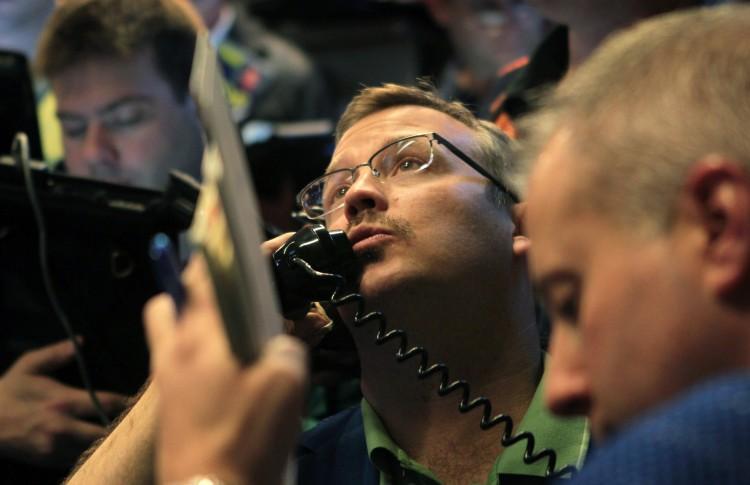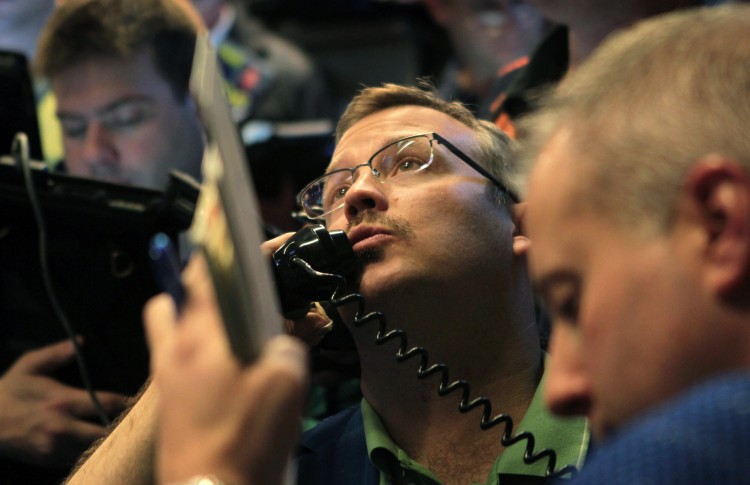NEW YORK—The Federal Reserve on Wednesday pledged to extend its policy of keeping primary interest rates low in the United States in the foreseeable future until at least 2014.
In a released statement, the FOMC said, “Economic conditions—including low rates of resource utilization and a subdued outlook for inflation over the medium run—are likely to warrant exceptionally low levels for the federal funds rate at least through late 2014.”
Fed Chairman Benjamin S. Bernanke said that the central bank could pour more money into the U.S. economy in the form of additional asset purchases, after a meeting of the Federal Open Market Committee (FOMC), which sets U.S. interest rates. “We need to adopt policies that will both achieve our inflation objectives and help the economy recover as quickly as feasible,” Bernanke said in a news conference in Washington on Wednesday.
But Bernanke stopped short of saying that the Fed would pump more money into the economy should current signs of growth continue. In the past, the Fed has bought up mortgage-backed securities as well as U.S. Treasurys.
The last time the Fed made a major move on interest rates was late 2008, when the federal funds rate was cut to near-zero levels to stimulate an economy reeling from the worst financial crisis since the Great Depression. Rates have remained low ever since.
Economists and analysts have been divided on the direction the U.S. economy is heading, with some arguing that the economy is healthy enough to warrant higher rates to stave off inflation, while others are saying that growth still isn’t robust enough and more support is needed from monetary policy.
The Fed said Wednesday that it expects the U.S. economy to grow by 2.2 to 2.7 percent in 2012.
Investors Cheer Decision
The FOMC’s remarks Wednesday were a boon to the stock market. The Dow Jones Industrial Average was in the midst of a slump when the announcement was made, and the index rallied, ending the day in positive territory.
The Dow gained 81 points, or 0.6 percent. The S&P 500 Index jumped 11 points, or 0.8 percent, while the Nasdaq Composite Index shot up 31 points, or 1.1 percent.
Technology shares led the gains, after Apple reported phenomenal quarterly earnings the prior day. Shares of Apple (Nasdaq: AAPL) jumped 6.5 percent, and for part of the day had once again surpassed ExxonMobil as the world’s most valuable company by market capitalization.
Airlines also were in the spotlight after US Airways Group Inc. and Delta Airlines Inc. both posted strong quarterly results. Shares of US Airways (NYSE: LCC) increased by more than 17 percent and Delta (NYSE: DAL) gained 6.2 percent on Wednesday. Revenues in the airline industry jumped due to higher fares charged during the holiday travel season as well as fuller planes.
Stocks largely fell in Europe, as additional fears over sovereign debts again worried investors. Greece warned that it may not be able to meet its scheduled bond interest payment in March unless debt holders wrote off around half of their values. Otherwise, the nation may have trouble borrowing to pay the interest installment.






